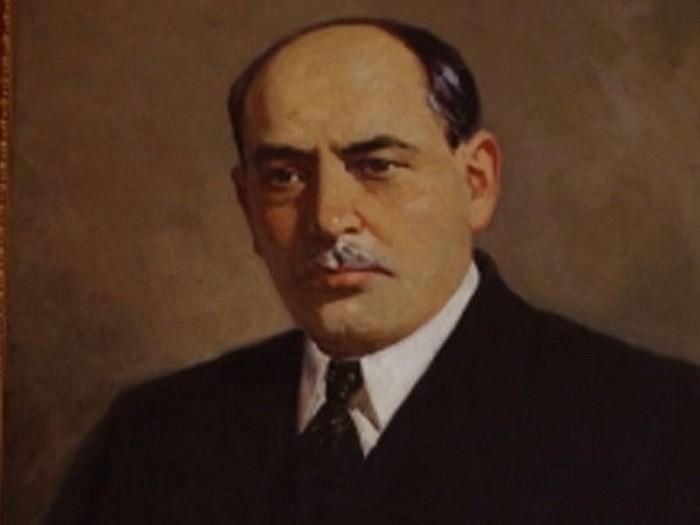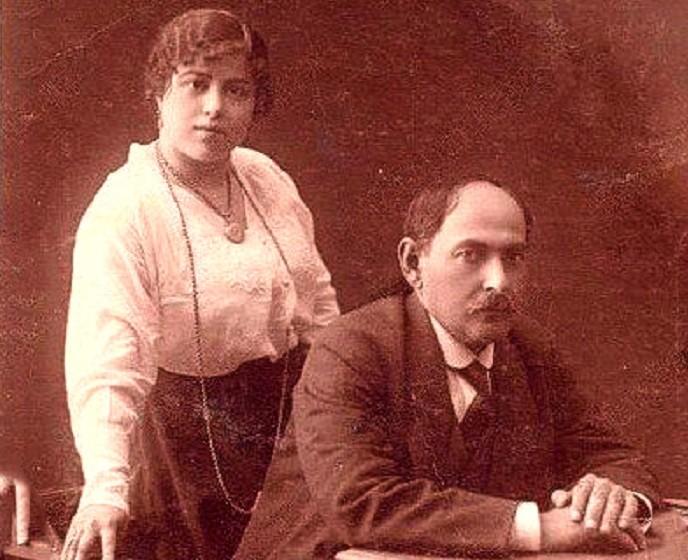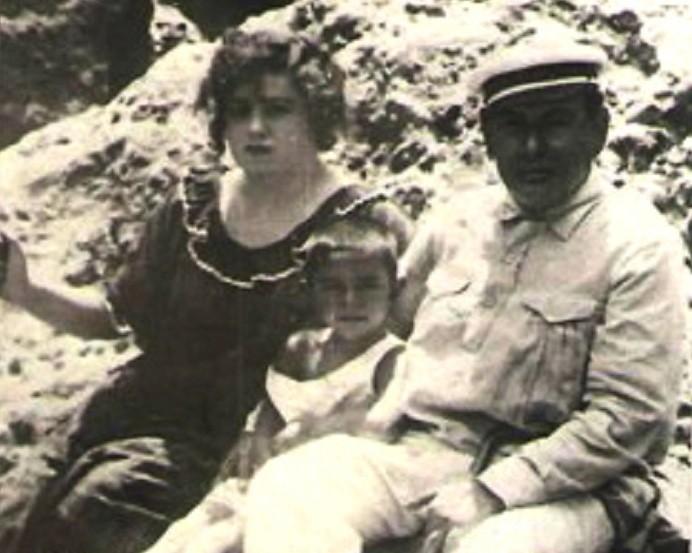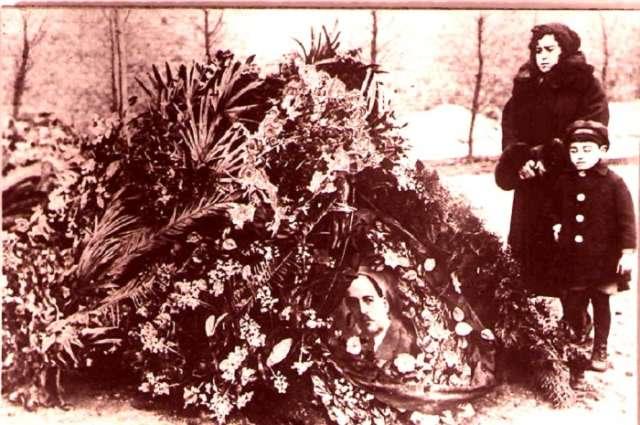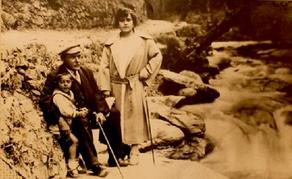
On April 14th, 1870, in the city of Tiflis, a baby was born in a poverty-stricken house near a cliff along the road leading to a Muslim cemetery. It could have never occurred to anybody that the baby lulled to sleep with a lullaby in a dark hut would have grown up to be a great man and prominent revolutionary; these are the opening lines of the book by Vali Mamedov on his compatriot, Nariman Narimanov, an Azerbaijani writer, public and political figure.
2020 marks the 150th anniversary of Nariman Narimanov.
Childhood
The book, Nariman Narimanov, briefly describes Nariman’s childhood spent in Tbilisi. Nariman was the youngest child in a poor family with nine children. Together with siblings and relatives, he listened to his father telling them the history of Tbilisi.
Nariman’s father, Karbalai Najap, was an immensely honest, educated, and hard-working man. He married Haji Mohammed Gasim Zamanov’s daughter, Khanum. Despite dire poverty, they brought up nine children and named the youngest after his great-grandfather Nariman Alakhverdi, who, in renowned Georgian poet Grigol Orbeliani’s opinion, was one of the most famous khanendes (mugham singers) in Georgia.
Prince Ioann Batonishvili mentions Nariman Narimanov in his poem “Kalmasoba.”
Nariman’s father lived next to his elder brother; he used to bring his children and nephews together and tell them the history of Tbilisi.
Nariman listened to stories about his great-grandfather, whose name he carried, particularly carefully. In the 17th century, his great-grandfather served at the palace of King Erekle I as his chief adviser.
Gori Seminary
Little Nariman was taught reading and writing by his uncle and older brother. When the boy turned 11, he was sent to the Gori Seminary, which educated teachers for elementary classes in the Caucasus. The education medium was Georgian, Russian, Azerbaijanian, and Armenian languages. The Gori Seminary contributed significantly in shaping the minds of the progressive, well-educated members of society in Transcaucasia. At different times, the seminary was attended by Kocharli, Uzeir Hajibegov, Mahmudbeg Mahmudbegov, Rashidbeg Apandiev, Jalil Mamedgulizade, Suleiman Sani Akhundov, Muslim Magomaev, Vazha Pshavela, Iakob Gogebashvili, Niko and Tedo Razikashvili, Lado Aghniashvili, Niko Janashia, and others.
NB Report.ge will periodically provide its readers with materials on Gori Seminary graduates.
School Teacher
Nariman Narimanov graduated with honors from the Gori Seminary and was sent to serve as a teacher to the village of Kizilajlo, the Borchaly Uyezd of the Tiflis Governorate.
The school situated in the Borchaly Uyezd resided by Azerbaijanis. Nariman introduced himself to the lives of local pheasants, their customs and rites and supported them through any hardship. He popularized science, education, and literature as he believed that teaching and guidance would have yielded fruitful results.
Narimanov could see that a similar disadvantageous social situation was not characteristic of that particular village only. He brought to light the ills of society and wanted people to understand him. It is not accidental that, like his predecessor, M.P. Akhundov, Narimanov chose drama from the genres of literature and, knowing that people needed a mighty wake-up call, he produced his first literary work titled "Ignorance," in which he expressed concern over the existing situation in the society. "Ignorance" revolves around the developments in the village, with the author even giving the locals' names in his book. The 20-year-old playwright exposed the ills of the society in his plays to make the public see the situation in a new light and realize that their daily life, with its rules, was intolerable. By doing so, he wanted them to understand that bringing about a social change was required. Precisely from this moment, he started his fight.
After his pedagogical activities of one year in Kizilajlo, Narimanov moved to Baku in 1891, where he first taught at the local pregymnasium and the Men's Gymnasium in Baku later. In 1902, Narimanov was admitted to the faculty of medicine at Novorossiysk University.
Nariman Narimanov writes in his autobiography as follows: “to support mother, aunt and sister with her eight children, I held special lessons each summer. The desire to pursue studies obliged me to endure hardship without letting streaks of bad luck stop me from achieving my goals.”
Despite financial hardship and difficult life, Narimanov worked hard around the clock, studying, writing novels, plays, and teaching others. He developed connections in India, Turkey, Bulgaria, Egypt, and Iran by contacting different editors and publishing houses. In addition, Narimanov held lectures, joined amateur acting groups, visited different families, and called upon the public to share his opinions.
Political Career
In 1905, Nariman Narimanov entered politics. He joined the Social-democratic Muslim Party Hummet (Endeavor) and participated in revolutions underway in Transcaucasia. For this, he was incarcerated in 1908 and sent to Metekhi prison. Later he was exiled to Astrakhan, where he spent five years. In December of 1916, Narimanov was elected as one of the leaders of the Legal Center of the Bolshevik Organization in Baku. In 1918, he became a member of the Committee of Revolutionary Defense. In autumn of the same year, after Ottomans took over Baku, Narimanov left the city for Moscow. In 1919, he was appointed as the head of the Middle East Department of the RSFSR People's Commissariat for Foreign Affairs. In April of 1920, when Baku was occupied by Bolsheviks, Narimanov served as a chairman of the Azerbaijani Revolutionary Committee. In 1924, he started delivering public science lectures at the Communist University of the Toilers of the East (KUTV).
In 1925, 55-year-old Narimanov died in Moscow under mysterious circumstances, with a heart attack being determined as the official cause of his death.
It is noteworthy that Nariman Narimanov’s monument stands in Marneuli Municipality, and his house museum is on the 41st Ioseb Grishashvili Street in Tbilisi. The Marneuli Culture House was also named after him.
Narimanov made a significant contribution to bringing the two – Georgian and Azerbaijani –nations together.
2020 marks Nariman Narimanov's 150th anniversary.
Information included in this article has been collected from “Nariman Narimanov” by Vali Mamedov.
